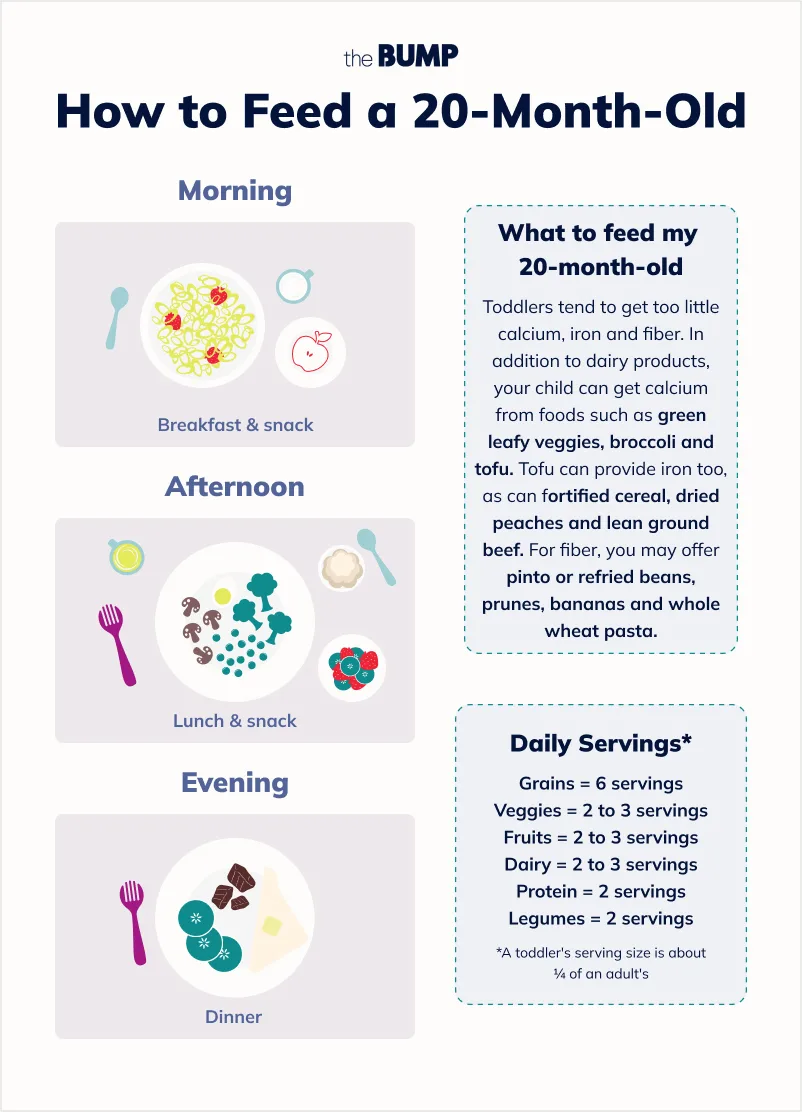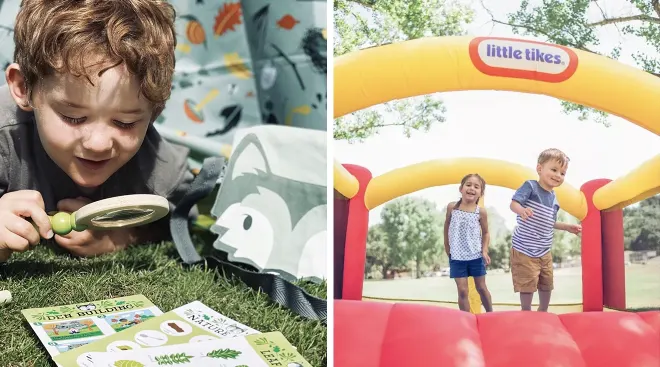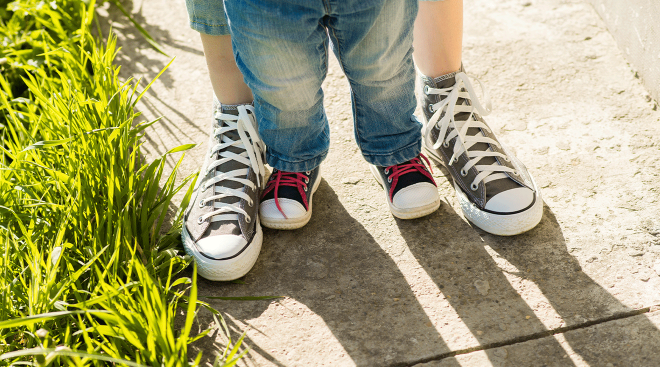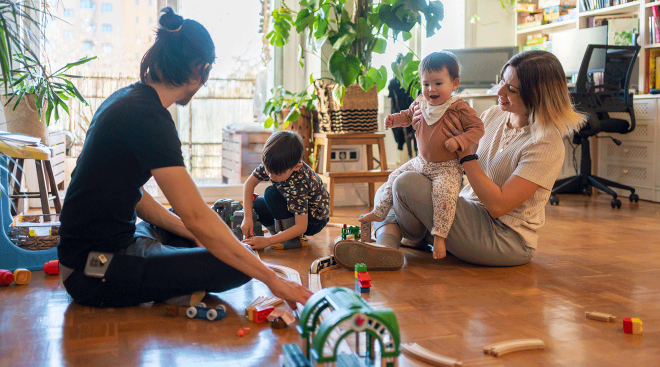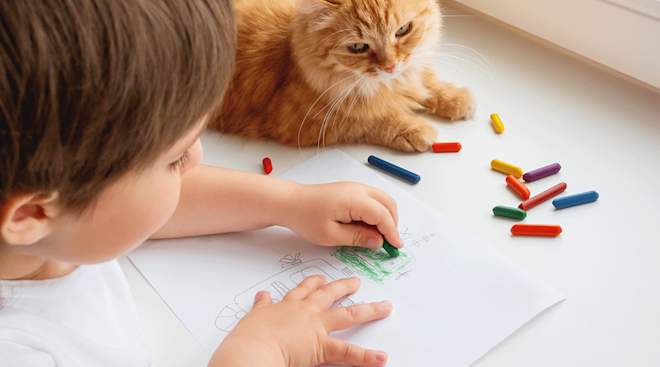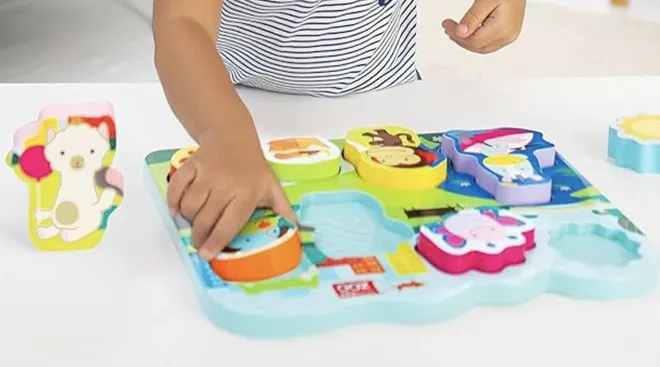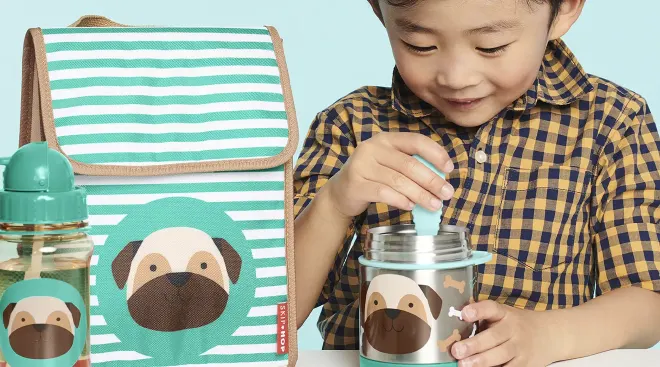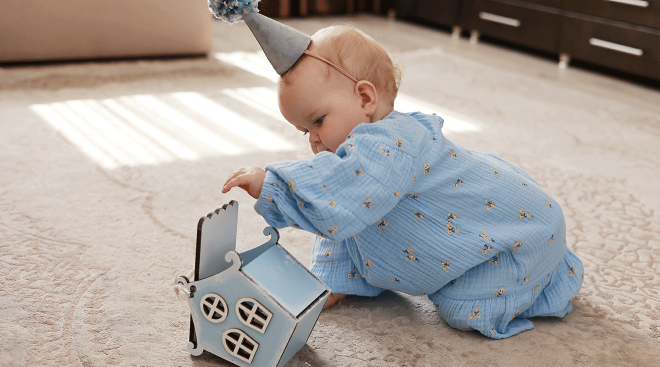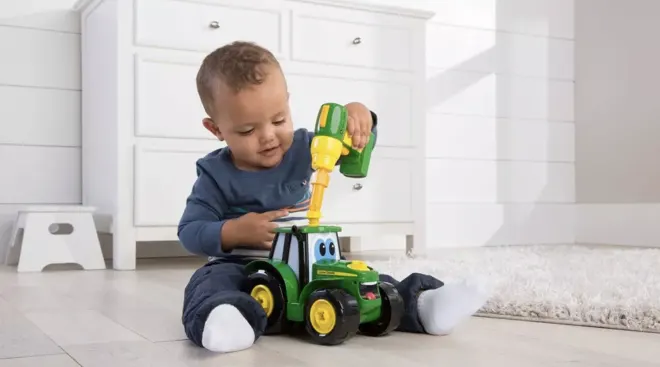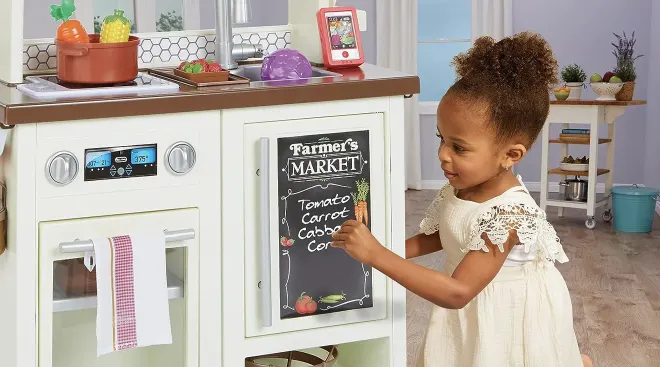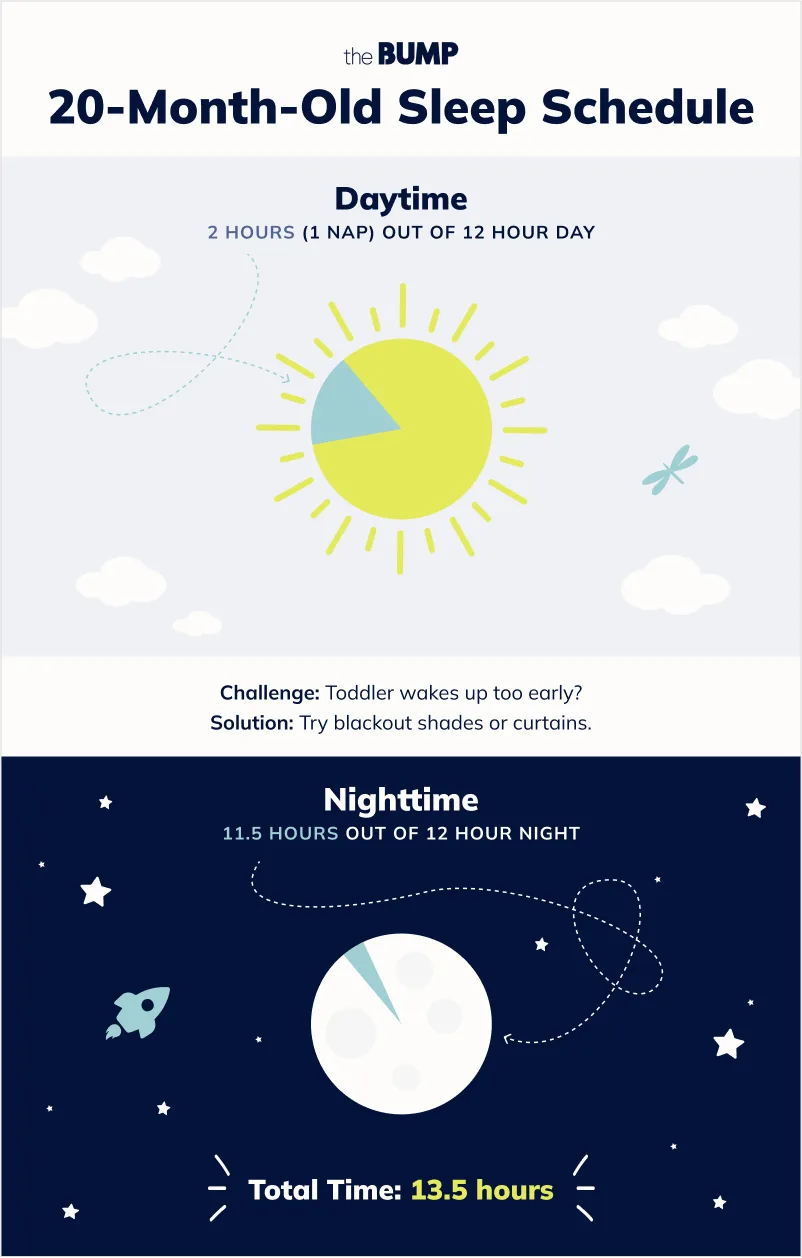With age comes more opinions. You’ll likely notice your 20-month-old baby insists on doing things their own way, which can be both exciting and challenging at times. As your tot continues to grow and develop, you’ll want to keep an eye on certain 20-month-old milestones to ensure they’re staying on track. To help you know what to expect at this age, we’ve provided a handy 20-month-old baby guide with all the info you need, from sleep schedules to checklists.
Twenty-month-olds tend to have two sides to their personalities: the fun-loving, energetic side and the side that's a bit of a challenge. Your little rebel may be resisting feeding, changing, getting in the car seat, washing hands…and just about anything else you want them to do.
Toddlers this age like to feel like they’re in control, so offer lots of opportunities for your kiddo to “help” or make their own choices. Let your child feed themselves, for example (even if it’s messy), and if they say they're done after two bites, so be it. And give your kid a chance to feel as if they're making their own decisions. For example, you might ask, “Do you want to bring your teddy or your truck for the trip?” as you get ready for a car ride, instead of simply, “It’s time to get into your car seat.”
20-month-old weight and height
A 20-month-old’s weight is, on average, 24.4 pounds for a girl and 25 pounds for a boy, according to the World Health Organization. Wondering how tall your 20-month-old should be? Average height is 32.6 inches for a girl and 33.1 inches for a boy.
20-month-old milestones
What should your 20-month-old be doing? Here are some 20-month-old milestones your child may have hit or may be working on:
- Walking. Some 20-month-olds can stand on one foot while holding on to the wall or a chair. Your toddler is probably working on learning to walk up steps; next will come walking down them. At this point, make sure to use gates at the top and bottom of stairs to protect your little climber. To prevent children from falling out of windows, keep furniture away from windows and make sure windows have guards.
- Speech. Your child may be saying up to 50 words, and will soon start asking "What?" and "What's that?" to just about everything. They’ll also use two-word combinations and reply to requests with “no.”
- Teething. 20 months is about the time a child's first lower molars pop through, so don't be surprised if there are a few nights with disrupted sleep.
- Potty training. A few 20-month-olds show signs of potty training readiness. Now might be a good time to buy a training potty seat and/or start reading potty training books together, if you haven't already. But beware of putting pressure on your kid to potty train too soon. Most kids aren't really ready to start until about 24 months.
20-month-old behavior
Your now almost-2-year-old is ever-changing, but here’s advice on how to deal with some potentially challenging behaviors:
- Tantrums. Even though your kid's language is developing by leaps and bounds, they still can't communicate everything they want to say, and that can lead to some meltdowns.
- Separation anxiety. At this age, your kid might become more aware of being away from you and may make a scene—especially if they're hungry, tired or sick. Though it's tempting to linger at daycare drop-off, it's best to make goodbyes quick and to stick with a routine. Reassure your child you'll be back and be specific about when.
- Pushing, hitting or biting. Chalk it up to experimentation, but 20-month-olds tend to have their moments of behaving badly. Avoid overreacting or using physical punishment—"biting" your kid to show them how much it hurts doesn't stop them from doing it. Stay calm and keep telling your child that hurting others is never okay.
Twenty-month-olds seem to have mild illness after mild illness. Some common health questions parents have at this age include:
- My 20-month-old has diarrhea. What should I do?
- What should I do about constipation in my 20-month-old?
- My 20-month-old has a temperature that's high. What should I do if a fever develops?
Feel like a short-order cook? It’s okay to let your toddler know “this is what’s for dinner” and not offer other options. They won’t starve by refusing a meal now and then.
How much should my 20-month-old eat and drink?
One- to 2-year-olds should be eating much like you do: Three or four meals per day, plus two snacks. Give them a variety of foods in all food groups—vegetables, fruits, grains, protein and dairy—daily.
What to feed my 20-month-old
Toddlers need plenty of calcium, iron and fiber. In addition to dairy products, your child can get calcium from foods such as green leafy veggies, broccoli and tofu. Tofu can provide iron too, as can fortified cereal, dried fruit and lean ground beef. For fiber, you could offer pinto or refried beans, prunes, bananas and whole wheat pasta.
For meal inspiration, check out these food ideas for a 20-month-old:
20-month-old feeding schedule
20-month-old won’t eat
Now that your child's growth is slowing down and they're getting more independent, you might find them refusing to eat more often than they used to. You can't and really shouldn't force your child to eat—but you should keep offering a variety of healthy foods and as many unprocessed foods as possible. Here's more great advice on how to deal with picky eating. If your child won't eat anything at all, it could be a sign of illness, and you should call the pediatrician immediately.
Most parents transition toddlers from crib to bed between the ages of 1.5 and 3 years old. Not quite there yet? First, lower the crib mattress as far as it will go and see if that will keep them secure. Ready to take the plunge? Let your tot help you put their big-kid bed together—it'll help them feel more ownership.
How much sleep does a 20-month-old need?
Most 20-month-olds need around 11 to 12 hours of nighttime sleep, plus a nap of about 1.5 to 3 hours, for a total of about 13 to 14 hours of sleep per day.
20-month-old sleep schedule
Every kid is different, but your child's schedule may look something like this:
20-month-old sleep regression
Regression can happen when a formerly good sleeper suddenly begins waking more, throwing you for a loop. A bout of teething or illness could be the cause, or maybe a trip or holiday where their sleep routine changed. To get back to the usual snoozing routine, it's important to know the root of the problem, so you can find the right solution to help your child get through it. Stick with the usual bedtime routine and set limits that will help your child get back on track.
20-month-old won’t sleep
Some nights, it seems like bedtime takes way too much convincing. But the truth is, kids need rest and they will eventually sleep. We promise! Wind things down before bedtime—turn off the TV, music and devices at least an hour before bedtime; give your tot a soothing bath and read calming stories. And keep the routine consistent: one book, two kisses, one refill of water, then lights out, for example. Don't let your kid stall or delay.
20-month-old nightmares
When your toddler wakes in the middle of the night, it can be tough to tell whether it's because of a nightmare or another sleep disturbance. But time could clue you in: Doctors say dreams and nightmares tend to happen in the second half of the night.
If you suspect your 20-month-old has had a nightmare, comfort them and soothe them back to sleep, reassuring your child that you'll be close and everything is okay. During the day, be careful they're not exposed to any stories or shows that could scare them and cause future nightmares.
20-month-old waking up too early
We've been there: You know your child needs more morning Zzz's but they get up with the sun. Make sure their room is dark and quiet in the mornings. We highly recommend blackout shades or curtains for their windows.
A 20-month-old shows independence through simple chores and activities they see their parents or older siblings do. They love songs and learning through playtime. Looking for things to do with a 20-month-old? Some fun activities, games and toys for a 20-month-old include:
- Drawing with crayons. Together you can work on practicing drawing a straight line.
- Head, shoulders, knees and toes! Your 20-month-old may be able to name between nine and 13 body parts.
- Playing with blocks. Your child is still working on stacking skills and may be able to stack several of them.
- Doing chores together. Let your 20-month-old set the spoons on the table, wipe up spills and sweep the floor with a mini-broom. At this age, work feels like play.
- Reading together. Never underestimate the power of reading. Read with your 20-month-old baby every day and encourage them to choose their favorite stories and follow along.
- Using your imagination. Find ways to get your toddler to engage in pretend play. Dress up in costumes, build forts and turn cardboard boxes into spaceships, and let fun, imaginary narratives unfold.
- It's never too early to practice good hygiene. Teach your child to wash and dry their hands and get into the habit of doing it together.
- The American Dental Association recommends speaking with your kid’s dentist before switching from brushing with water to using a small dab of fluoride toothpaste to brush their teeth. Practice brushing your teeth together—after a while, you just may notice your kiddo wanting to brush their own teeth. It’s okay to let them experiment, but be sure to do a second round of brushing to ensure you get all their teeth truly clean.
- Your toddler’s lower molars should start growing in around this age, so keep remedies at the ready to ease any discomfort.
- A 20-month-old is often ready to tackle stairs. Section off stairs in your home with safety gates to prevent any accidents until your tot masters this new skill.
- If you’re still giving your 20-month-old baby a cup of milk before bed, it’s time to start weaning them off of it. It is okay to stop it altogether—only offering it with dinner or after their last meal of the evening.
- As tempting as it is to allow your child to watch TV, continue to limit screen time as much as possible. Some studies suggest introducing screens too early can have negative effects on children’s short-term memory and attention spans. It can also potentially delay their language development and disturb their sleep.
Time seems to be flying by as your 20-month-old baby learns something new every day and continues to grow and develop. While you’re tracking your child’s progress toward their 20-month-old milestones, keep in mind that every little one develops at their own pace. However, if you’re ever concerned about your toddler not learning certain skill sets, contact your pediatrician.
Please note: The Bump and the materials and information it contains are not intended to, and do not constitute, medical or other health advice or diagnosis and should not be used as such. You should always consult with a qualified physician or health professional about your specific circumstances.
Navigate forward to interact with the calendar and select a date. Press the question mark key to get the keyboard shortcuts for changing dates.


































